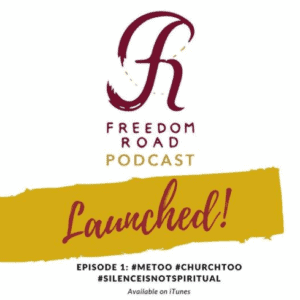 Presidential campaigns have a long, storied history of character attacks. Candidates have been called bastards, drunkards and moral lepers. But there’s one incredibly specific allegation that gets levied against presidential candidates more and more often in the social media era: “antichrist.”
Presidential campaigns have a long, storied history of character attacks. Candidates have been called bastards, drunkards and moral lepers. But there’s one incredibly specific allegation that gets levied against presidential candidates more and more often in the social media era: “antichrist.”
When people on my Facebook feed started panicking about whether President Obama was the Antichrist (a panic common enough that it made it into The Onion), it was still novel to me. Now, engagement bait that declares a presidential candidate to be the Antichrist is practically a cottage industry. TikTok is full of sensational videos explaining why President Trump or Vice President Harris will be a willing servant of the Prince of Darkness. Twitter users trade memes of the candidates looming over a kingdom of flames. And you can find hastily written books on Amazon explaining why whichever particular candidate you dislike is the Antichrist and that our only hope as a country is to stop them.
What does “Antichrist” mean?
The only place in the Bible that the term “antichrist” is used is in 1 John, where it describes people and spirits who deny Jesus. If we’re using the term the way John seems to use it in his letters, then it’s entirely possible one or both of this year’s presidential candidates could have a disposition that denies the authority, grace, goodness, and posture of Jesus. But that’s not groundbreaking in any way. We’ve hired people into public office who are anti-Christian in spirit before, and we will probably do so again.
(It’s worth pointing out that this way of framing “antichrist” is closely related to the idea of “false prophets” and “false Christs.” These are people who use God’s name in vain to lead people astray, promoting behavior that is at odds with the first three commandments and at odds with the fruit of the Spirit. The Bible never mentions these kinds of people in a positive light.)
But that’s not usually what people on social media mean when they use the phrase “antichrist.” Most American evangelicals generally use the phrase “the Antichrist” to describe some kind of “final boss” confronting Jesus and the church. When people use the phrase this way, they’re typically using it to describe a particular interpretation of “the man of sin” from 2 Thessalonians or one of the antagonistic beasts in Revelation—with a generous dose of movies like The Omen and End of Days mixed in.
If we’re using the term this way, I’m confident that neither President Trump nor Vice President Harris is going to end up being “the antichrist,” because this vision of the antichrist is at odds with what Christianity has historically taught about the arc of human history.
Exaggerating our government’s power
It’s good to be concerned about who serves as our head of state. Our government’s decisions have very real consequences for more people than we will ever meet. And since, in a representative and participatory democracy, we are all responsible for our government, we should all be engaged with it and aware of its consequences.
But panic over whether a particular candidate is “the antichrist” almost always implies that they have the potential to thwart God’s plans for the world. This attributes a spiritual power to the candidate in question that none of them have ever actually possessed. History is not a closely contested fight between God and an equal-but-opposite anti-God who could very well win. God is ultimate—the Alpha and the Omega.
The consequences of government, while real and potentially brutal, are also limited. For all the trouble and turmoil and very real suffering in this world, God’s kingdom is coming. There’s nothing the American government can do to stop it. Our job in the meantime is to show the people around us the character of God’s future world in the way we think, speak, and act. Amidst the trouble and turmoil and suffering and injustice, we have the unique privilege of offering a foretaste of a better future to the people around us. We get to be agents of mercy and grace, standing together in contrast to the violence, selfishness, and insecurity around us.
Jesus’ most common command
The most common command Jesus gave people in Scripture was, basically, not to freak out. “Fear not,” “be at peace,” “take heart,” etc. All of those things boil down to “don’t freak out.” If our faith is true, and the story it tells about sin and brokenness in the world is true, then we should expect the world we live in to freak out more than it was meant to. And we spend our lives navigating systems and societies where that kind of freaking out is contagious.
What does it look like when that impulse to freak out infects people of faith? Sometimes, it looks like mis-using a biblical term to exaggerate just how powerful your political opponent really is. It looks like calling a candidate “the Antichrist.”
Jeremiah 29:4-9 has been one of the most influential passages of my spiritual formation. It was delivered by the prophet Jeremiah to the Israelites at what was, at the time, one of the lowest points in their national history. Their country had just been sacked by Babylon, which was implementing a genocidal strategy for enforced cultural assimilation. The people of Israel didn’t like this. They liked having a vision of themselves as politically and militarily triumphant, and they were desperately hanging on the words of anyone who would tell them that this exile was going to be a brief and temporary stage of God’s ultimate plan for them to overthrow Babylon. In the midst of all of this fear and confusion about their future, the prophet Jeremiah had this to say:
This is what the Lord Almighty, the God of Israel, says to all those I carried into exile from Jerusalem to Babylon: “Build houses and settle down; plant gardens and eat what they produce. Marry and have sons and daughters; find wives for your sons and give your daughters in marriage, so that they too may have sons and daughters. Increase in number there; do not decrease. Also, seek the peace and prosperity of the city to which I have carried you into exile. Pray to the Lord for it, because if it prospers, you too will prosper.” Yes, this is what the Lord Almighty, the God of Israel, says: “Do not let the prophets and diviners among you deceive you. Do not listen to the dreams you encourage them to have. They are prophesying lies to you in my name. I have not sent them,” declares the Lord.
Jeremiah 29:4–9
Even if the people who are freaking out turn out to be right and we end up electing not just someone who’s bad at the job but the actual Beast of the Sea and our country turns into the modern equivalent of Babylon, Jesus’ followers should still make every effort to help one another stay calm, stay kind, stay generous, and live lives marked by love, peace, patience, kindness, goodness, gentleness, faithfulness, and self control. Historically, that’s exactly the call Jesus has for his people in violent and oppressive times.
 Rick Barry serves as the Executive Director of the Center for Christian Civics, where he equips the church to think, speak and act differently in the public square. He has worked on campaigns for local, state and federal office, is a former writer and editor for Redeemer Presbyterian Church in New York City and oversaw communications for the Grace DC church network. He and his wife live in Washington, DC.
Rick Barry serves as the Executive Director of the Center for Christian Civics, where he equips the church to think, speak and act differently in the public square. He has worked on campaigns for local, state and federal office, is a former writer and editor for Redeemer Presbyterian Church in New York City and oversaw communications for the Grace DC church network. He and his wife live in Washington, DC.


